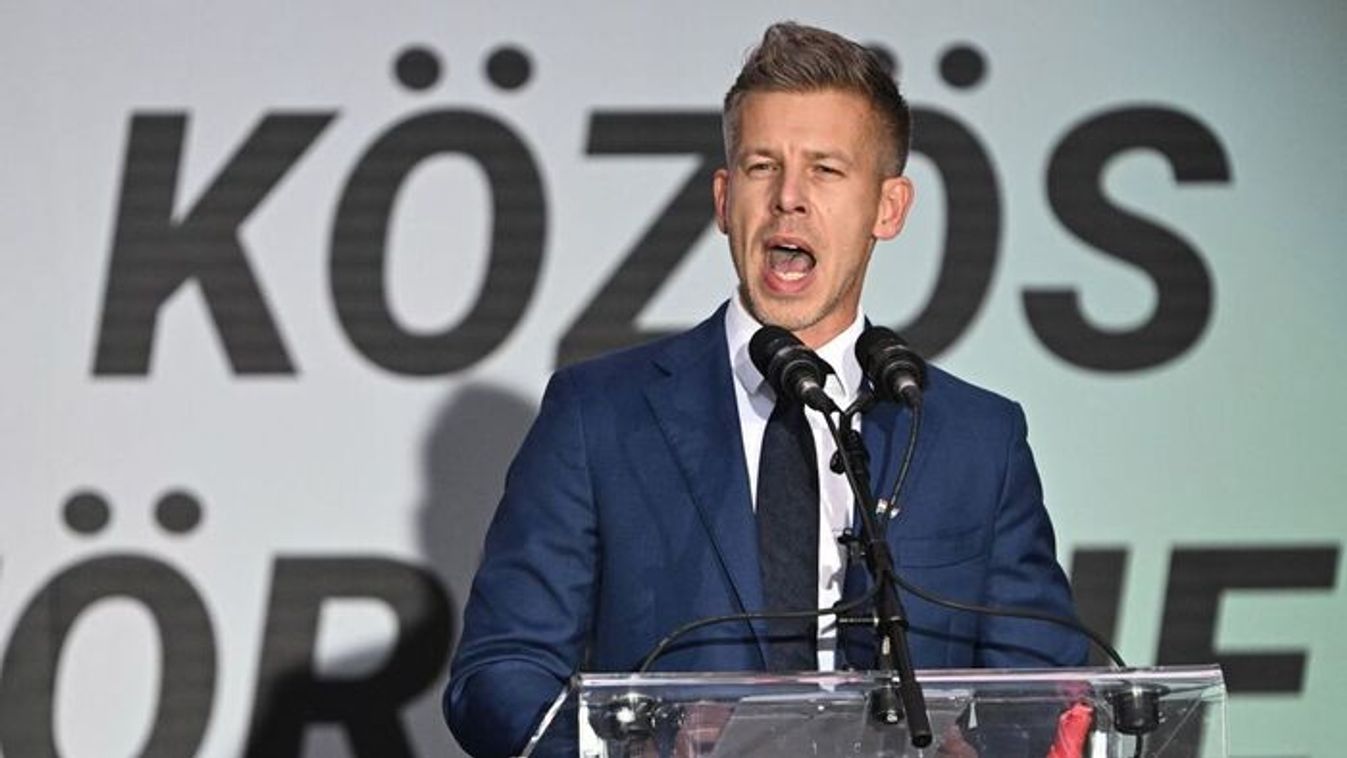Itt a legfrissebb közvélemény-kutatás: így áll most a Fidesz és a Tisza Párt

Továbbra is zajlik a közvélemény-kutatások „háborúja”, utánajártunk, mekkora a valós különbség a Fidesz és a Tisza között.

I do not think that the waiver will help us overcoming the current vaccine shortage. The first problem is that there is not enough infrastructure – manufacturing facilities, equipment, personnel – to expand vaccine production to the levels it should be at to meet pandemic demand. In this context, altering the intellectual property status quo does little – Ana Santos Rutschman, assistant professor at the Saint Louis University School of Law pointed out in a conversation with Lénárd Sándor, researcher at the National University of Public Service.

There are increasing calls for waivers of patent rights against COVID-19 vaccines. Were there situations like this before? How did countries address the dilemma around vaccine or other medicine related patent rights?

This is the first time in which there is serious consideration of a waiver proper. There have been situations in which developing countries have used intellectual property mechanisms to solve problems posed by patent-driven access to pharmaceutical technologies. I think the best illustration of how problems related to intellectual property have played out in the past comes from the HIV/AIDS crisis, which is ongoing, but which was at the forefront of both political and intellectual property agendas several years ago. In this case, developing countries made use of a legal tool contemplated in the TRIPS Agreement known as compulsory licensing.
It allows for the forced licensure patented products in certain situations, which most definitely include public health crises
– from HIV/AIDS to the COVID-19 pandemic, as well as smaller-scale crises, if compulsory licensing becomes necessary.
Through compulsory licensing, a national government grants a license to one or more third parties without the consent of the patent holder. The beneficiaries of the license are then able to manufacture the drug (or other necessary product, such as a diagnostic or medical equipment) without infringing on patent rights, and against the payment of a royalty. Technically, this is different from a waiver. Compulsory licensing does not temporarily suspend intellectual protection. The waiver requested by the governments of India and South Africa during COVID-19, would apply to intellectual property (and possibly trade secrets) “in relation to prevention, containment or treatment of COVID-19” and would target the enforceability of these rights for the duration of the waiver.
What is the best way to imagine a vaccine patent? Can you explain what the difference between the exclusivity and the information problems is?
I think that a patent in general can be described as a recipe. It tells you how to make a product (or component thereof) or replicate a process. In this case we are talking about several components and processes that need to come together to produce a vaccine.
A patent will give you the general directions, but it will not include all the information needed to “bake the cake.”
Imagine a recipe that says “add flour.” In some cases, that might be all you need to know. In other cases, there might be a “trick” such as sift the flower, or add it incrementally, that is not written in the recipe but that is passed along among those in the know. At a much more complex level, that is what is needed to manufacture a vaccine – to be “in the know,” to have access to those crucial details that only the originator knows and that are not apparent from the cake/vaccine itself.
In this context, exclusivity refers to proprietary forms of knowledge – if there is a valid patent, you cannot use the knowledge disclosed in the patent to replicated the patented item or process, although you may use it in some other (limited) scenarios. The informational aspect of the problem relates to the fact that, even if limitations derived from patents are removed, in the case of complex goods like vaccines, third parties still lack access to all the steps in the recipe to replicate the underlying good.
How did countries or the international community manage to address the problem of vaccine scarcity before?
This problem has never been addressed from an intellectual property perspective. In fact, I would say that, both at the country level and within the international community, vaccine scarcity has never really been tackled as a public health problem, which I think it is. It is also mainly an infrastructural and transactional problem, which is why I suggest below that the waiver is not the appropriate tool to address this problem.
We have long known that the global capacity to produce vaccines was insufficient to meet pandemic demand. During the previous pandemic (swine flu, 2009) projections showed that the global vaccine manufacturing capacity was probably between one and two billion vaccine doses. A single country (the United States) placed advance vaccine orders that would capture more than half of the initial supply of vaccines. Other high-income countries placed orders that were disproportionately high, much as what happened during the early stages of COVID-19. Therefore, realistically, vaccine scarcity has not been addressed – rather,
it has given rise to vaccine nationalism,
with a limited number of countries reserving most of the vaccine supply and then, once the outbreak begins to decline, donating excess doses to lower-income countries.
During COVID-19, the first steps to break this (highly inadequate) mold have emerged.
The most important has been the formation of COVAX, a transnational vaccine procurement structure.
COVAX uses the same legal tool used in vaccine nationalism (advance purchase agreements) to reserve vaccine doses that are divided equitably among participating countries. It is definitely a step in the right direction, albeit one that remains relatively modest for the time being.
Can the waiver of patent rights contribute to overcome the current vaccine shortage? What are the shortcomings of this approach?
I do not think that the waiver will help us achieving this goal. The first problem is that there is not enough infrastructure (manufacturing facilities, equipment, personnel, etc.) to expand vaccine production to the levels it should be at to meet pandemic demand.
In this context, altering the intellectual property status quo does little,
as intellectual property speaks to the ability to exclude others from copying a product – in this case a vaccine – but
intellectual property cannot increase production of physical goods that are scarce to begin with.
Vaccines are scarce, but so are the means to produce them right now. This is very different from the case of compulsory licensing of HIV/AIDS drugs I mentioned above, in which removal of intellectual property barriers was enough: there was enough manufacturing infrastructure and raw materials to bolster production. That is not the case with COVID-19 vaccines.
There is also an informational problem that the waive does not solve. The HIV/AIDS drugs in question were structurally simpler and more stable from a manufacturing perspective than vaccines, which are biologics. Even without cooperation from patent holders, third parties could replicate these drugs. With vaccines, that is virtually impossible.
The information provided in the patent is useful but by no means enough to enable the manufacturing of a vaccine.
The group of drugs vaccines belong to – as biologics – has long been known for being very difficult to replicate. A lot of the knowledge needed to produce biologics is not captured in the text of a patent. There is tacit knowledge, know-how that only the originator company has. Without it, third parties will not be able to produce biosimilar vaccines. For these reasons, I think that the waiver is a mismatch – unlike in other crises, the problem here is not intellectual property per se.
If waiving the patent rights is not the optimal solution to the current shortages, how can the vaccination be accelerated, especially in developing countries? Could compulsory licensing or any other approach such as infrastructure or capacity building provide a more effective solution?
Approaches taken during a pandemic are necessarily remedial. Yes, ramping up infrastructure and related production capacity is a starting point – and it is already happening – but it needs to be sustained even as the pandemic declines, and hopefully beyond it.
For the reasons I discussed above with regard to the inadequacy of the proposed waiver,
I do not think that compulsory licensing will work during COVID-19 either.
In fact, several countries amended their domestic laws to make compulsory licensing easier during the pandemic, but so far there has been no compulsory licensing of vaccine technology.
Besides the American vaccines, there are other vaccine technologies on the world market. European countries could be in a position to purchase and use each of those technologies. In order to address the current shortages, how should we approach the question of accepting each other’s technologies from a regulatory and public health perspective?
Vaccines are evaluated by domestic regulators.
If a regulator finds that a vaccine meets the criteria for approval or authorization, which are grounded on scientific considerations, then it should not matter where the vaccine comes from.
That being said, the geopolitics surrounding the provision of vaccines often prompt countries to consider factors that have less to do with public health and more with long-term political and even commercial agendas.
The modern technology and industry including biotechnology, molecular diagnostics and medical technology are increasingly science-oriented. One invention is built on the other. In other words, one of the fundamental conditions of industrial development is the continuous progress of intellectual achievements. I am wondering what could be the right or best possible balance of an IP regime that can promote development, preserve the competitiveness of firms that invest in R&D and serve the interests and needs of the population at the same time.
I wish I had a straightforward answer to this question. In some cases, compulsory licenses are a solution within intellectual property regimes that can be deployed effectively. Unfortunately, COVID-19 has underscored the fact that, for especially complex biotechnologies, we may not yet have found the right legal tools.
Some scholars and commentators would recommend greater reliance on non-IP incentives, such as large prizes or grants, that would be conditioned by knowledge-sharing provisions.
We should also keep in mind that voluntary sharing of technology and know-how, while limited, has a role to play – in this sense, it might be worth continuing to explore some of the solutions that developed during COVID-19, such as the Open COVID-19 Pledge and patent pools maintained by international organizations, such as the World Health Organization’s COVID-19 Technology Access Pool (C-TAP). And, finally, we may need to make structures like COVAX permanent, fund them adequately, and link vaccine procurement to caps on vaccine acquisition (to curb vaccine nationalism on the part of wealthier countries) and greater obligations of equitable sharing of existing vaccine supplies.
